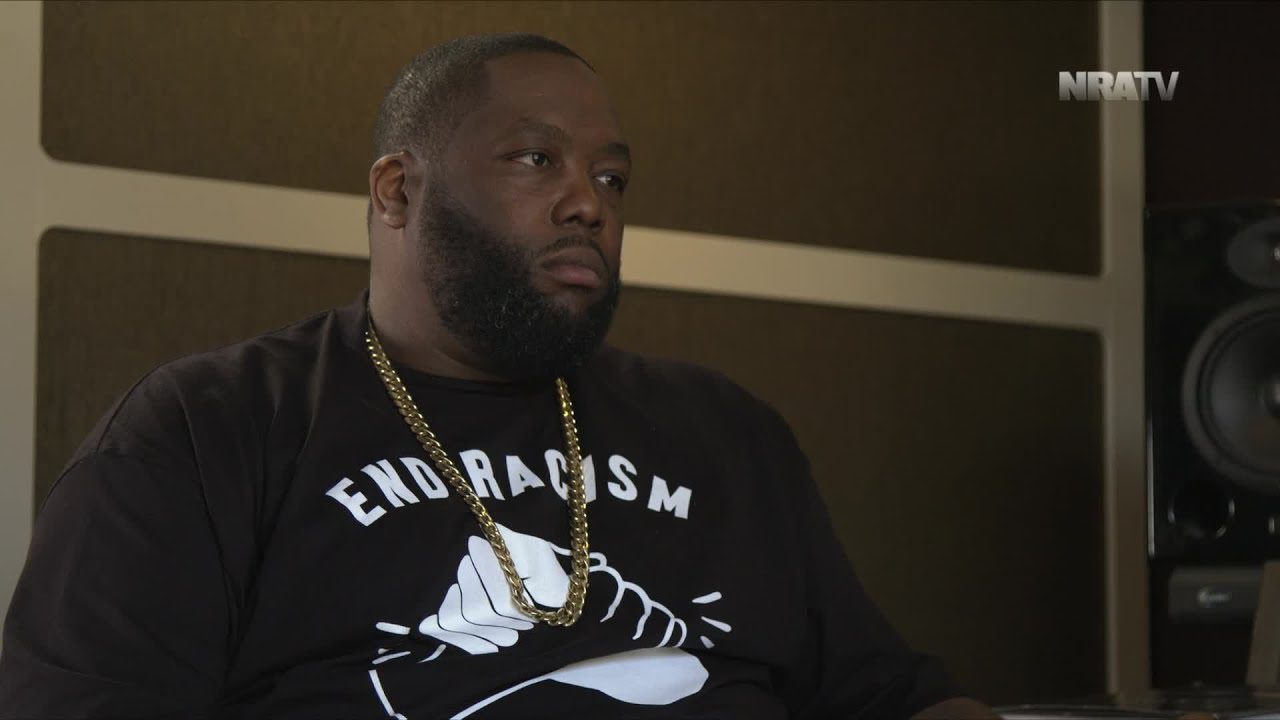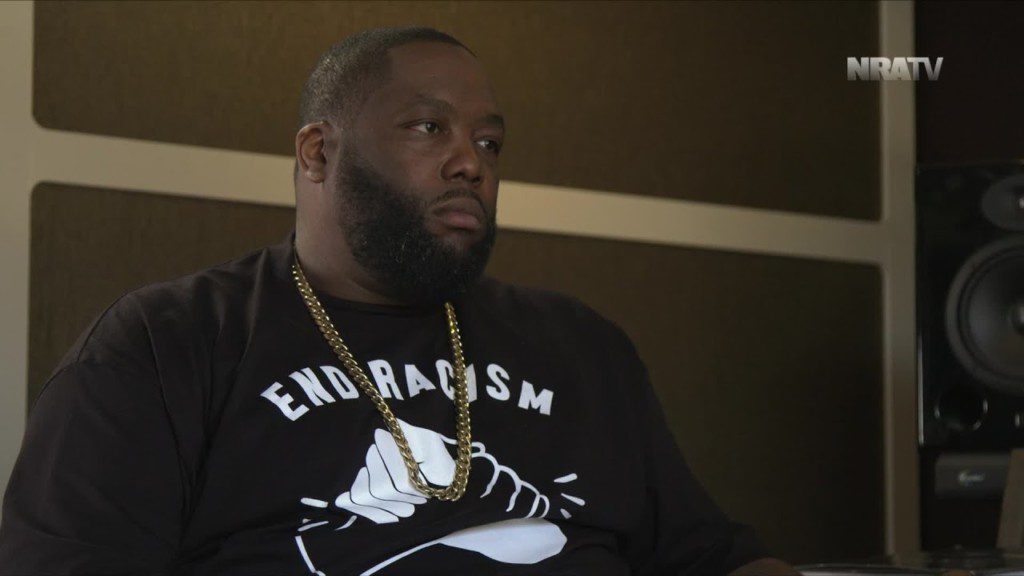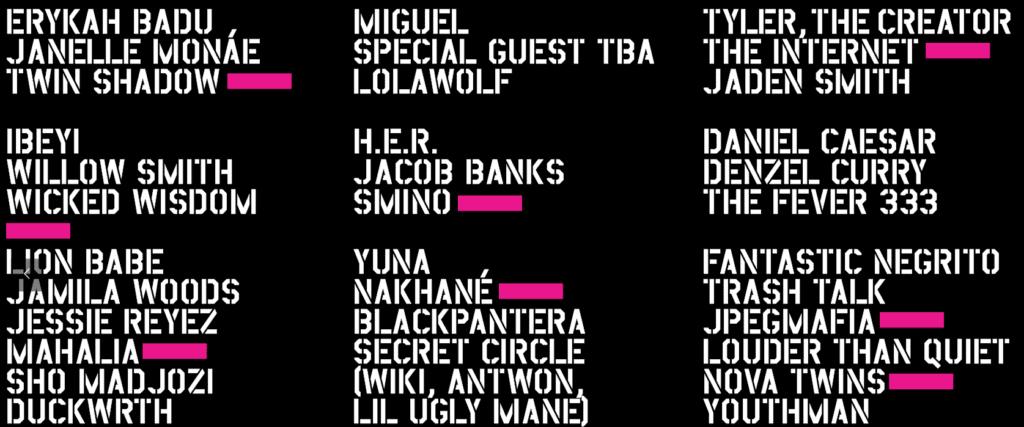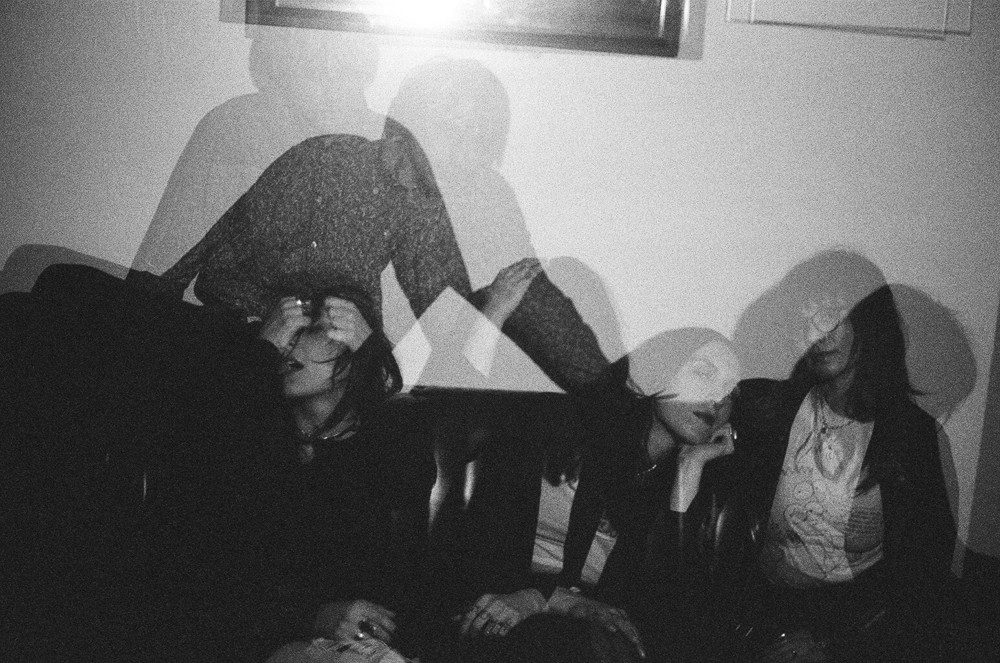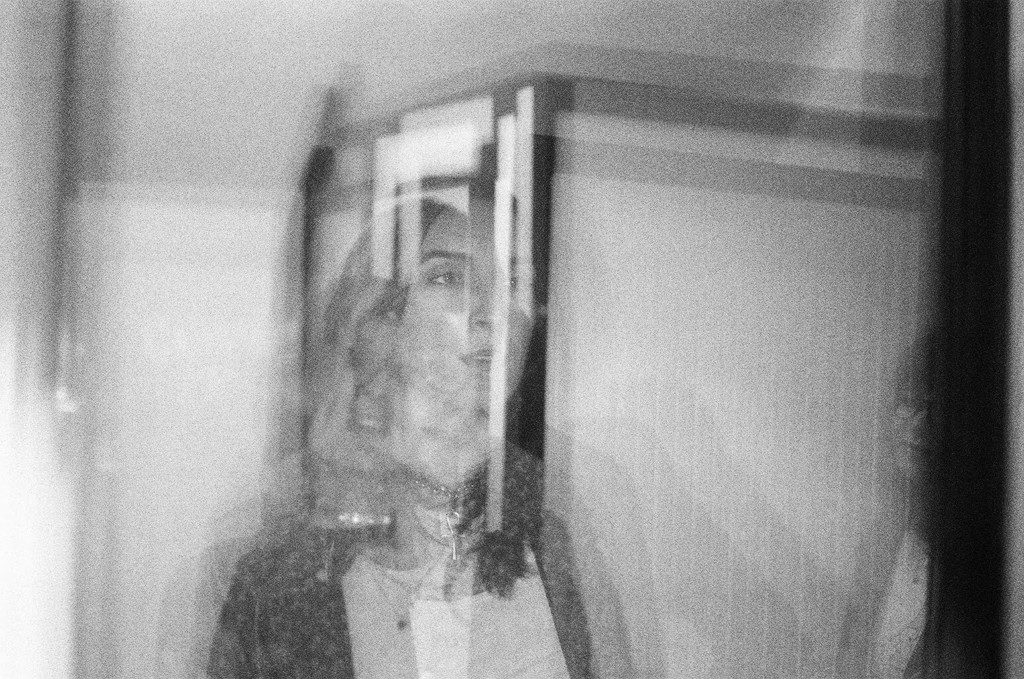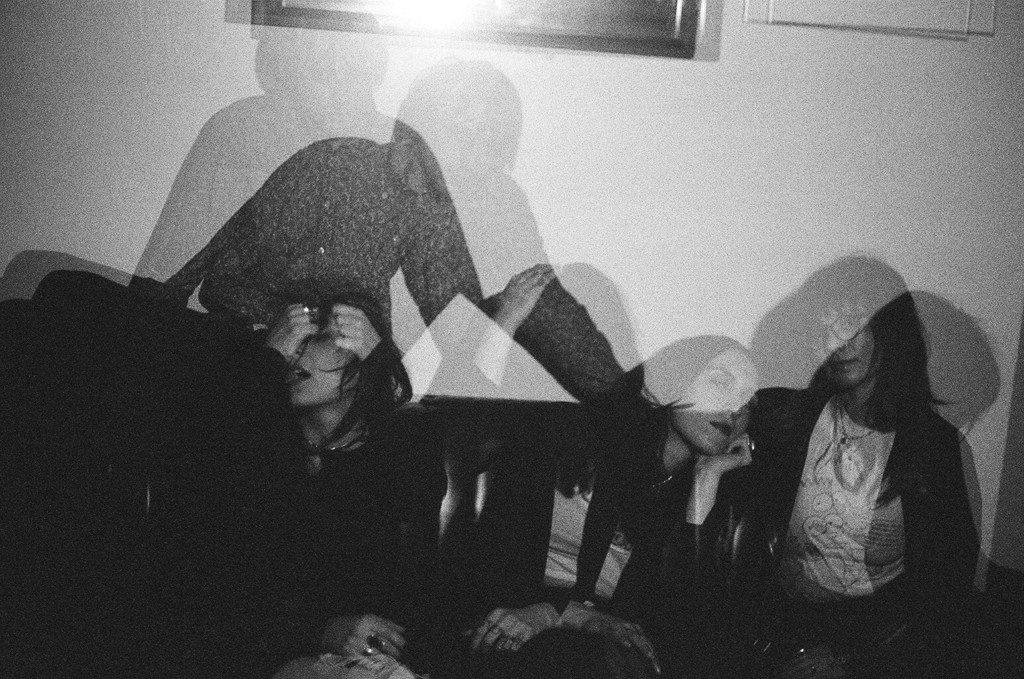

It’s one of those days. The sun is bright, but the news is bad and everyone’s eyes are on the clouds, peering from the windows of our hermetically-sealed homes, perfectly composed as if to somehow stave off chaos. On the surface, things almost seem normal, even as a slow-moving blaze encroaches. Enter post-punk outfit Bizou, with their latest EP Stilllifeburning: a fierce, yet plaintive collection of darkwave vignettes made for those solitary hours in a world on fire.
While Bizou’s sound has an inherent freshness to it, the LA-based quintet is comprised of veteran musicians – singer Marissa Prietto (Wax Idols, Glaare), multi-instrumentalist/producer Josiah Mazzaschi (Light FM), bassist Nicole Fiorentino (Cold and Lovely, Smashing Pumpkins, Veruca Salt), drummer Erin Tidwell (Tennis System, Jennie Vee) and guitarist Nicki Nevlin (Light FM). Time and experience has clearly benefited the band, as each single on Stilllifeburning comes across as the perfect synth soundtrack for days spent daydreaming about nights downtown, rubbing elbows with leather-clad shoe-gazers, eating ramen in the early hours after a show.
It begins on an urgent note: “Now there’s crashing sky / in your green eyes / a crashing sky / crushing you, crushing me too,” Prietto sings, apocalyptic visions swimming in the mirrored reflection of her lover’s eyes. “Burn Your Name” takes us racing down a darkened street, looking for a shadow, a memory of the person she once knew: “Fire to change you / fire to tame you / fire to burn your name / fire to chase you / fire to save you / fire to burn your name.” “Kiss The Stars” taps into the slow burn of a doomed romance; the lofty synths and Prietto’s sullen, wistful vocals give off some killer Say Anything vibes, if Lloyd Dobler had been really into to The Cure. Stilllifeburning is a story told in the alleyways, neon lights blaring in the windows of a club; it immediately gives off the sensation of watching a silent film, faint images flickering with only music to accompany each scene. Prietto hints at watching that disintegration from afar on “Trapdoor” as well as in a press statement about the record as a whole that uses the same metaphor: “If you could dive into the subconscious of another person totally separate from you, as if through a trapdoor — that to me would describe the feeling of these songs,” says singer Marisa Prietto.
Listen to AudioFemme’s exclusive stream of Stilllifeburning below and read our interview with the band.
AF: As a band, your pedigree is fire. How has the experience of working together in Bizou differed from past projects?
JM: We were all friends first so it’s very platonic in this band. We’re all really easygoing. and have many similar musical tastes.
NF: It always feels very natural working with these three. There’s a lightness to it, a flow that hasn’t necessarily been there in every project I’ve been in. It makes it really easy and fun to be creative!
NN: This has by far been one of my favorite experiences with a band. we get along so well and we are pretty much 100% on the same page about everything. It’s kind of rare!
MP: It’s really different starting a band from scratch as opposed to entering an established band with existing dynamics and work flow. I think that has made collaborating really easy for us. There is no hierarchy. Regardless of which of us brings in a song or an idea, we all have equal input on how that idea is ultimately executed.
AF: What aspect of the song-writing process is your favorite? A hook, a line, a melody? The moment someone layers on a sound that gives it that certain something?
JM: A lot of our songs stem from Marisa’s or my demos. When Marisa sends me a demo I get excited to chop her song ideas up in Pro Tools and add my own parts and melodies.
NN: I love the process of creating guitar lines with Josiah. Also love the moment the vocals are laid down on the track – you can hear the magic come together.
MP: I love it when Josiah chops up my songs. It always makes them exponentially better. As a singer it’s satisfying for me to discover a hook, but arranging and listening to my bandmates lay down their parts is my favorite.
AF: Tell us about the genesis of this new EP. You’re just released your self-titled debut last year. What did you go into the studio hoping to convey?
JM: I’m always in the studio, so for me my approach was trying to dedicate as much attention to detail and critical listening that I give to all the projects that walk into my studio.
MP: This EP is so different from our last one. The demos started from this much moodier, and I wanna say, straightforwardly post-punk sound. We wanted to mess with that format and tweak it until it became something more our own.
AF: Which song is the most personal to each of you and why?
JM: I really like how “Burn Your Name” turned out. It sounds like a goth Go-Go’s song! Marisa’s vocals sometimes reminds me of Belinda Carlisle.
NN: I think “Call of the Wild” will always have a special place in my heart because it’s the one that brought us all together.
MP: “Kiss the Stars” is the most personal for me. It’s a catastrophic breakup song sourced from one of my first-ever demos. I felt vulnerable bringing it to the group. The lyrics aren’t as distanced or metaphorical as some of the ones I write. It makes it a little unnerving to perform live sometimes which I guess isn’t necessarily a bad thing.
AF: At what age did each of you start playing music and what were your first songs about?
JM: I started playing drums when I was 12 in band and then in punk/hardcore and industrial bands in my later teens.
NF: About 14, I started playing bass. I was really into riot grrrl at that time so all my songs were about feminism!
NN: I started playing guitar at 13 and only played Hole and Breeders songs over and over in my bedroom!
MP: I started playing piano and doing voice lessons when I was 8 but I didn’t write any songs until I was like … 28? Seriously. And I didn’t play any of them for ANYONE until I was in my 30s. Late to the party but happy to be here.
AF: You have such a clear, distinctive sound and style as a band. Do you ever write a song or hook and you’re like: “Damn, this is not a Bizou song. This is totally Roy Orbison.”
JM: I’m always throwing song ideas at the band. If I write something that doesn’t sound like us they’re usually like, “nah.”
NN: Sometimes something super clubby will come out of the studio, which is a lovely surprise!
MP: Me and Josiah pass around demos all the time and sometimes we are like fuck this is cool but this is completely, like, not a Bizou song. Josiah makes so much music it’s insane, and not limited to any particular genre, which I love. Going forward I’d like to incorporate more of that, and take more risks with our sound. I don’t think want to be confined to a specific genre.
AF: What bands/music inspire you, but are out of Bizou’s genre?
JM: I’ve been working with this industrial/post-punk band called Aurat. They sing in Urdu. It’s really unique. They are within our genre but their background is definitely different but cool!
NF: Neko Case, Tegan and Sara, Nina Simone, Jenny Lewis, Fleetwood Mac.
MP: I’m not even sure what our genre is, but if I had to guess, it’s goth and goth-adjacent? I’m actually scrolling through my most recently played stuff and I it’s chaotic as usual: Clinic, Ariana Grande, Cleaners from Venus, Material Issue, Eartheather, Hunny, Holly Herndon. I don’t even know what to make of that.
AF: You’re an LA-based band. What about the city gets you going creatively? Any favorite spots?
JM: So many amazing bands from all around the world come here. It really is a global melting pot. Inspiring!
NF: My favorite spots are The Bootleg, The Hi Hat, Satellite. There are so many great venues here it’s hard to list! We have an incredibly supportive community. I’ve always felt that way living here. It doesn’t feel competitive here the way it does in some other major cities.
MP: I grew up in and around LA. As cheesy as it sounds, I do get a lot of creative inspiration from being here because I am bonded to the place and it really has always felt like home. Even in my worst times I’ve always felt in control and empowered just like, driving around on the freeways here because I know them so well. Being here gives me a sense of continuity that makes me feel grounded enough to stay creative.
AF: With Coronavirus keeping everyone at home, have ya’ll been meeting up via video chat? Are you still writing or just taking a break for the moment?
JM: I’m working from home and not in my studio. I’ve busted out an old 4-track recorder from my garage and have turned my couch into my studio.
NF: Just taking a little time to reflect on everything that’s going on in the world and how it affects me, my loved ones, our community. I think there’s gonna be a lot of amazing art that comes out of this time. But I also think it’s important to slow down for a minute while we can (and have to). Really puts a lot of things into perspective. Already I’m seeing the things I’ve taken for granted and already I can see the ways I am going to be different after all is said and done.
MP: I’ve definitely been writing— it all sounds like shit though! Until we can get into the studio with Josiah, it’s going to remain sounding like shit, and I am going to keep writing, because I need something to do with my hands in the time of Corona. I think we do have a band FaceTime scheduled in the next couple days. I miss everyone. I miss playing together.
Preorder Stilllifeburning HERE. Follow Bizou on Facebook for ongoing updates.

